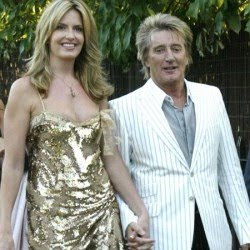North Vs South Korea - The Resurfacing War
 What some people do not know is that the Korean War has actually been going on since the initial war broke out between North and South Korea in 1950. It has never ended, albeit poor and not-so-eager attempts to stop it. Rather, there was merely a ceasefire that was never resolved. But whatever truce there was between them was not apparent, even to most of the rest of the world.
What some people do not know is that the Korean War has actually been going on since the initial war broke out between North and South Korea in 1950. It has never ended, albeit poor and not-so-eager attempts to stop it. Rather, there was merely a ceasefire that was never resolved. But whatever truce there was between them was not apparent, even to most of the rest of the world.There have been different versions as to the real cause for this conflict between the North and South Korea. Some say that it is just a cover-up for the real raging battle for political and economic power between the United States, which supported South Korea and the Soviet Union, which backed up North Korea. But the more accepted reason was the stern fight for democracy to prevail over communism, and vice versa, which was known to be the cold war between the once wartime allies. Indeed, aside from Russia under Joseph Stalin, North Korea also found huge support from its likewise communist neighbor China headed by Mao Zedong (Tse-tung).
In retrospect, Korea was separated into two different states when no common government could be decided upon. The Republic of Korea (ROK) pertaining to the South was established on August 15, 1948 with its nationalist leader Syngman Rhee; while the Democratic People's Republic of Korea (DPRK) for the North, as headed by Kim Il Sung, was organized in September 9 of the same year, just a couple of years after the end of the Second World War in 1945 and before the start of Korean War on June 25, 1950. This war ended in a peace agreement on July 27, 1953 with the help of the United Nations through its first concerted police action.
Apparently, the armistice was not permanent. Just recently, on November 23, 2010, the South Korea suffered a heavy bombardment of dozens of artillery shells by the North, killing two South Korean soldiers and destroying many properties. It appears that this started with suspected violations by the South of the North's waters off the west coast, resulting to the sinking of a South Korean warship that Seoul blamed on a torpedo allegedly fired by the North.
The world now watches as a bitter past resurfaces once again. What cause an even more real and imminent international apprehension, however, are the allegations that North Korea has nuclear weapons under its hood, which if really true, would be far from being unlikely that it will use against any provocation on anybody's part.
Justin Cooke is an author and partner at TryBPO.com, a Philippines outsourcing company based in Davao City, Philippines. Additionally, he creates niche informational sites about topics such as pool leak detection and cheap curtain rods for a variety of different industries.
Article Source: http://EzineArticles.com/?expert=Justin_Cooke



Comments
Post a Comment